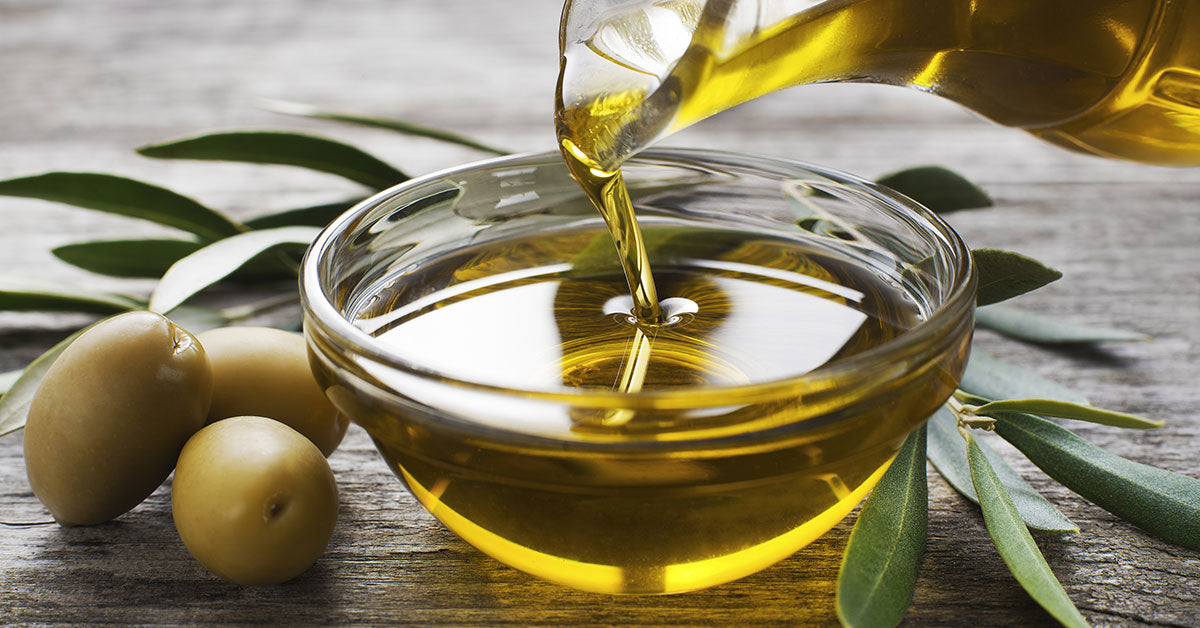Olive oil is derived from olives and is a staple of the Mediterranean diet. Natives who eat olive oil on a regular basis extol the benefits when consumed, yet when using this miraculous oil on your skin or hair, it also has a plethora of goodness that goes beyond when applied frequently. Pure, organic, virgin olive oil has been around for centuries, and it’s no wonder that skincare enthusiasts and hairdressers alike include this essential oil into their regimen.
Benefits for the skin and face
Some of the potential benefits of olive oil for the skin include:
- Antioxidant content - Olive oil acts as an antioxidant, which is a substance that prevents oxidation. Oxidation is a process that can produce free radicals, which are chemicals that can potentially damage cells and may contribute to cancer development. When applied to the skin, antioxidants may prevent premature aging. Also, by putting olive oil on the skin after sun exposure, this may help fight off cancer-causing cells.
- Vitamin content - Olive oil contains the fat-soluble vitamins A, D, E, and K. Some of these vitamins may be beneficial for the skin. For example, if you use vitamin E oil topically to treat a variety of skin conditions--including psoriasis and eczema--this type of skincare regimen has been passed down throughout history, as the oils are more conducive to smooth and anti-aging properties.
- Antibacterial effects - Olive oil has been shown to have antibacterial properties. However, there are very few studies on olive oil’s ability to control bacteria on the skin. The effects of using olive oil and coconut oil on Staphylococcus aureus bacteria on the skin shows that both oils exhibit antibacterial properties, but virgin coconut oil was more effective at eliminating the bacteria. Nonetheless, olive oil may be used to treat bacterial infections of the skin, and may also improve healing in those with foot ulcers caused by type 2 diabetes.
- Moisturizing effects - Olive oil is a popular natural moisturizer that is often used to soften both skin and hair. Its effectiveness for skin care depends on the type of olive oil and how often you apply it--either directly to the skin--or it’s included in one of your favorite products. Olive oil is an ingredient in many personal care products, including face wash, body wash, soap, and lotions. There are other ways to use olive oil, such as a moisturizer and after sun-treatment, or as an exfoliant (if mixed with sea salt to make a scrub), perhaps as an eye-makeup remover, or even a face mask. The possibilities are endless.
Due to its antioxidant content, olive oil may reduce aging skin and wrinkles. The oil can be dabbed around the eye area at night or following sun exposure. As a scar oil, the vitamins and other antioxidants in olive oil may fade scars by helping skin cells to regenerate. Olive oil may also be used to prevent or treat stretch marks, depending on how often you use the oil and whether your stretch marks are genetic.
Takeaway
Olive oil may offer some benefits for the skin, including vitamins, antioxidants, and antibacterial effects, however you must do your research to ensure it’s the type of oil that will work for your skin. Evidence suggests that it may cause adverse reactions in some people, so if you have sensitive skin, you should use it sparingly and do a test patch first. To do this, rub a few drops of the oil onto the arm and watch for a reaction. If none appears in 48 hours, it is likely safe to use. And remember to only use high-quality, certified olive oil.





